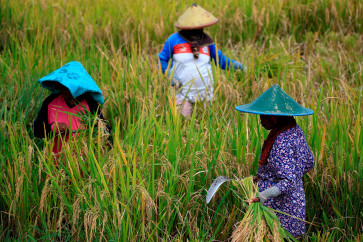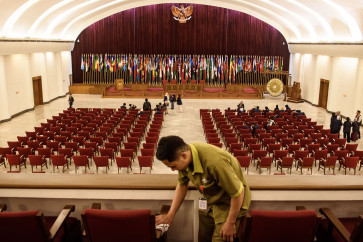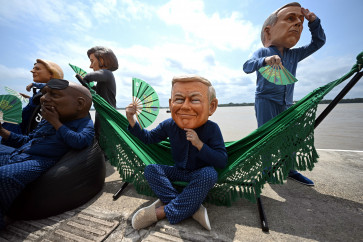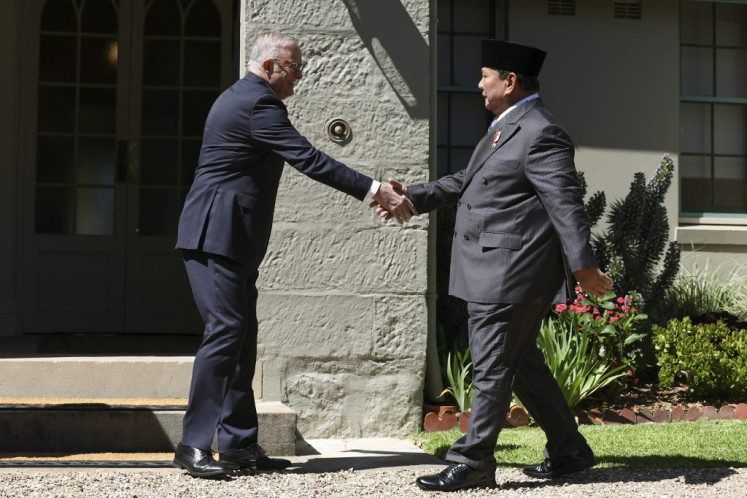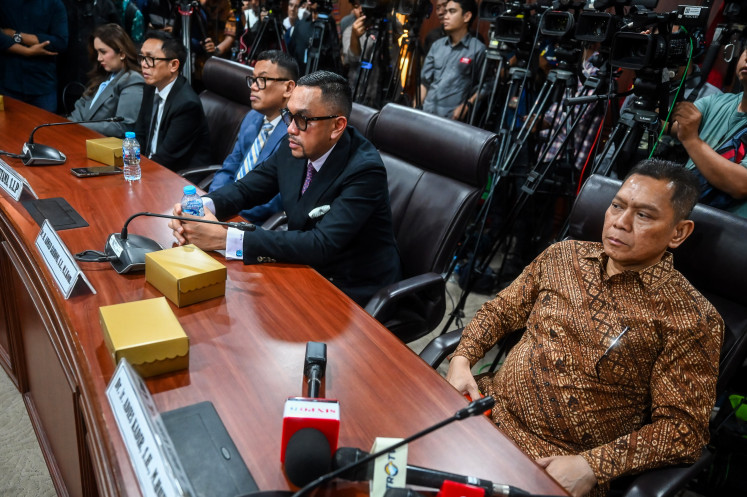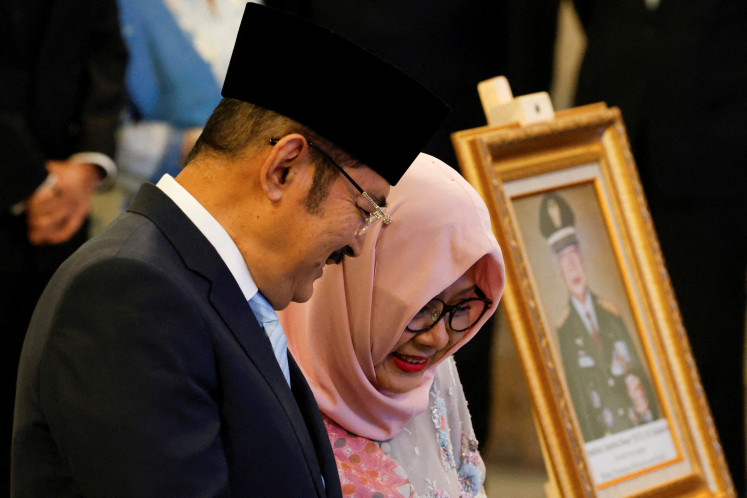Popular Reads
Top Results
Can't find what you're looking for?
View all search resultsPopular Reads
Top Results
Can't find what you're looking for?
View all search resultsWe want Indonesia’s big infrastructure projects: AIIB
Luky Eko Wuryanto (Courtesy of AIIB)As one of its cofounders and its eighth-biggest donor with US$672
Change text size
Gift Premium Articles
to Anyone
Luky Eko Wuryanto (Courtesy of AIIB)
As one of its cofounders and its eighth-biggest donor with US$672.1
million in investment over five years, Indonesia has a big stake in the
China-led Asian Infrastructure Investment Bank (AIIB), which is seen as a
serious rival to the World Bank and the Asian Development Bank (ADB).
The Jakarta Post’s Satria Sambijantoro recently talked in Beijing with
Luky Eko Wuryanto, AIIB’s vice president, chief administration officer
and the highest-ranking Indonesian on the bank’s management board, about
the vision of his organization and infrastructure projects in Indonesia
that are in the AIIB’s sights. The following are excerpts from the
interview.
Question: What kind of multilateral financial institution does the AIIB want to become?
Answer:
This is a 21st century multilateral institution that wants to benchmark
the best practices. Our idea is to create a “lean and clean”
organization. By saying lean, we want to be efficient.
The World
Bank, for example, is considered inefficient because it has 16,000
staff around the world with a decentralized approach in decision making
and all with high international salary standards. It’s very costly.
We
want to hire only the best, most competent staff. One staff member is
expected to have diverse skills from human resources to economic
analysis, or both excellent hard and soft skills, so we can apply a
multitasking approach in carrying out work.
On our clean
approach, we are a new institution and thus we are starting in a clean
state without any baggage at all. Still, we are aware of how things work
at the Asian Development Bank [ADB], the World Bank, the European Bank
for Reconstruction and Development [EBRD], and we are learning from
them. There are certain standards that a multilateral development bank
must comply with.
One year after the launch of the AIIB, how are the projects that you have invested in so far, especially in Indonesia?
So
far, we have four major projects up and running, with total financing
of around US$500 million: a power plant in Bangladesh, a road in
Tajikistan, an urban project in Indonesia and a toll road in Pakistan.
In
Indonesia, the name of the project that we financed is the National
Slum Improvement Project. Although a big chunk of the investment there
still comes from the government, we participate in a cofinancing
mechanism together with the World Bank — each of us invests $217.5
million — as well as the ADB, which has a relatively small stake there.
It
is basically a kampung improvement project where we invest in the
revitalization of basic infrastructure such as drainage systems and
water supply access in 150 cities throughout Indonesia. We supported
this project because it was the most ready project available.
Our [financing] target this year is $1.2 billion and some projects have already been proposed for it.
What kind of criteria must a project fulfill before it can be financed by the AIIB?
Our
current ability, particularly on funding and project preparation
support, remains very limited and automatically countries that put
forward their projects to the AIIB will have a bigger chance of getting
our approval if the projects are already well prepared. I specifically
wish that Indonesia could recommend projects that are both ready to be
executed and fulfill the standards set by the AIIB.
As a former
official at the Office of the Coordinating Economic Minister, I handled
many government priority projects whose financing could feasibly be
proposed to the AIIB, such as the trans-Sumatra toll road, or other big
projects. We are yet to look at the government’s 35,000-megawatt power
plant projects because we assume those [that are ready] are still
small-sized power plants.
We look for big projects — the ones
that, if executed, would trigger massive multiplier economic effects.
This kind of project, for the AIIB, is really appealing.
We are
now also working with governments to convince private sectors concerning
the projects’ feasibility. The presence of multilateral development
bank in a project — whether it is the World Bank, the ADB, or the AIIB —
would hopefully make the private sectors feel more secure on their
investments. We wish to become the bridge between the government and the
private sector, so the latter would be keener to invest in
infrastructure projects.
What is the AIIB’s perspective on the
environmental impact of infrastructure projects? The World Bank, for
example, is particularly strict about the financing of coal power
plants.
Our standards will remain high, but we are not ruling out
at all the possibility [of financing] coal-related projects. Developed
countries might have the view that coal is not a good thing for future
generations, but they must also realize that in Asia there are still
many poor countries where greater electricity supply is really critical.
The
question now is: What kind of coal-processing technology can we still
tolerate? A case in point is the coal power plant in Batang, Central
Java, which implements ultra-super critical technology. The Japan-made
technology is the most advanced coal-processing technology with a
different environmental impact. It is far better and far cleaner
compared to common coal-fired power plants.
The point here is
the AIIB will not write off coal-based projects completely. We are
pragmatic. If a country like Indonesia wants to push for, say, gas or
geothermal power, those electricity sources are very expensive and might
well still be beyond our financial capacity. But, we will also be
asking questions to governments: ‘Are you sure that there [are no] other
alternatives besides this coal project?’
The US has been
particularly critical on whether the AIIB will be able to fulfill high
international standards like those applied by other multilateral
organizations. How do you respond to this?
Make sure that you
understand that this is not a Chinese bank; it’s a multilateral bank.
International standards will not be sacrificed because countries such as
Germany, the UK, France and Australia are here and they certainly do
not want to see weak governance in the bank.
We are very
concerned about governance levels, but we do not want the process [of
loan disbursement] to be as protracted as at the World Bank or the ADB.
There the process could take one or one-and-a-half years — by then the
project would have already lost momentum. This has been the objective of
the AIIB’s establishment from the start: How to make a strong,
efficient financial institution while still abiding by international
standards.


